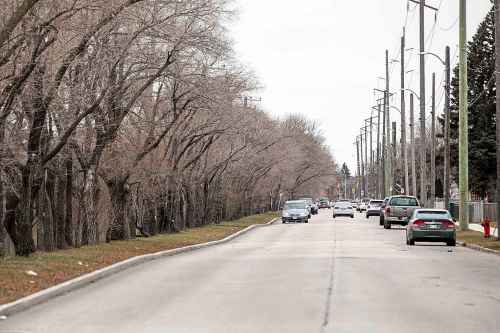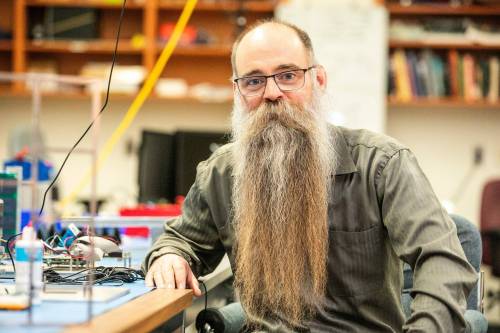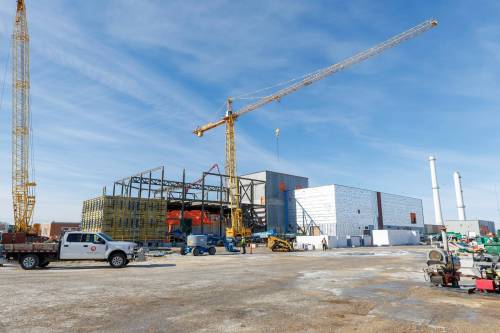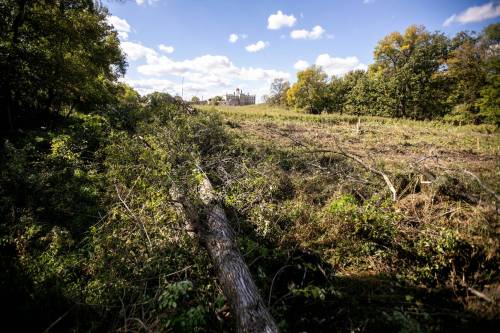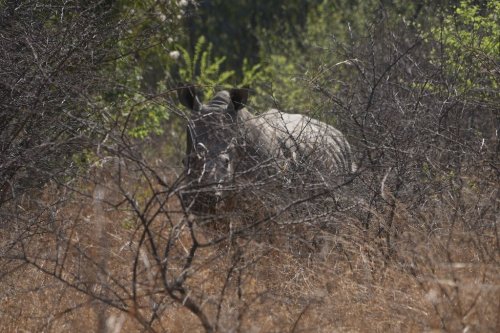Practical Science
Please review each article prior to use: grade-level applicability and curricular alignment might not be obvious from the headline alone.
Some blind fans to experience Super Bowl with tactile device that tracks ball
5 minute read Preview Friday, Jan. 30, 2026First Nation says Hydro misuse of river diversion destroying sturgeon population
5 minute read Preview Thursday, Jan. 22, 2026Funding shortfall undermines Canada’s ability to track diseases threatening wildlife, human health
7 minute read Preview Saturday, Jan. 17, 2026Manitoba enterprise at forefront in bolstering soil structure
7 minute read Preview Saturday, Jan. 17, 2026Body’s cellular makeup leads to big, existential questions
4 minute read Preview Saturday, Jan. 3, 2026Talking cows? N.S. researchers think they are getting closer to understanding moos
3 minute read Preview Saturday, Jan. 3, 2026Animal Nation includes rural and Indigenous people in its portraits of Prairie and northern animals
4 minute read Preview Friday, Jan. 2, 2026Skating trail expected to open in time for New Year’s Day activities at The Forks
2 minute read Preview Monday, Dec. 29, 2025Goats set for farm’s traditional Christmas tree feast
3 minute read Preview Monday, Dec. 29, 2025Doctor’s orders? ‘Belly laugh at least two to five days a week’
5 minute read Monday, Jan. 19, 2026Melanin Bee curves her spine like a stretching cat as she lets out a maniacal, forced laugh.
The quick-fire pattern of manufactured giggles —“oh, hoo hoo hoo, eeh, ha ha ha”— soon ripples into genuine laughter, and she giddily kicks her feet.
She’s practicing what she calls Laughasté, a hilarious yoga routine she created that is a descendant of “laughter clubs” that emerged in India in the 1990s. It feels awkward at first, but you fake it till you make it, she said.
“It’s about allowing yourself to be OK with being awkward,” said Bee, a Los Angeles comedian and speaker. “Then you’re going to find some form of silliness within that is going to allow you to laugh involuntarily.”
U of M researchers studying whether genetic testing helps zero in on effective mental-health treatment meds
3 minute read Preview Thursday, Dec. 11, 2025How does climate change affect the likelihood of extreme rain? Federal department aims to publish rapid results
3 minute read Preview Friday, Dec. 12, 202516,000 fossil footprints in central Bolivia reveal dinosaur behavior
4 minute read Preview Tuesday, Dec. 9, 2025Beleaguered parents of young children with diabetes ask province for help in schools
4 minute read Preview Tuesday, Dec. 2, 2025Hydro to cut down more than 260 trees on stretch of Selkirk Avenue
5 minute read Preview Friday, Nov. 28, 2025U of M over the moon about satellite’s lunar launch
3 minute read Preview Monday, Nov. 24, 2025Author goes far and wide on quest to document all plants native to Manitoba
7 minute read Preview Saturday, Nov. 15, 2025Greenwashing rules to be scaled back, but scope of change remains unclear
5 minute read Preview Wednesday, Nov. 12, 2025How Canada can regain its measles elimination status
6 minute read Preview Wednesday, Nov. 12, 2025City tries to get the most bang for its (sewage) buck
4 minute read Preview Friday, Nov. 7, 2025Three scientists at US universities win Nobel Prize in physics for advancing quantum technology
6 minute read Preview Wednesday, Oct. 15, 2025Another subdivision, another city problem
5 minute read Preview Tuesday, Sep. 23, 2025Wildfires like this aren’t normal. Stop trying to normalize them.
“Bring a pair of pants and a sweater to Clear Lake — it’s unseasonably cool because of the wildfires.” That was just one of those meteorological idiosyncrasies, attempting to reach back deep into long-forgotten geography lessons, that may seem obvious to those on the Prairies. But for the outsider, a visitor from Toronto, and indeed a relative newcomer to Canada, it was certainly a shock, and a stark reminder that I would be flying into a province still under a state of emergency, which had until recently been decimated by wildfires. It was also an introduction into what may be considered ‘normal’.
Visiting Manitoba this August was extraordinary — the people most certainly lived up to the “friendly” billing that adorns the licence plates, and the scenery of Riding Mountain National Park was worth the trip alone. However, there were a number of topics of conversation that made me question what I had come to know as accepted wisdom.
Talk about fishing restrictions, Indigenous rights, oil and gas permeated discussions, with healthy, good spirited debates. But for me, the most vexing issue was wildfires. More specifically, the extent of their aftermath, effects, and associated restrictions, have become normalized.














